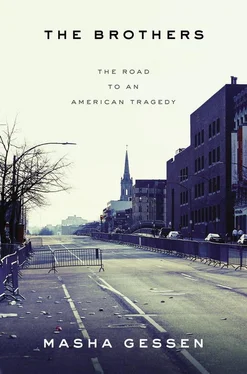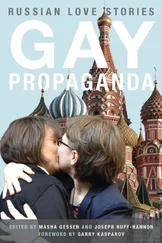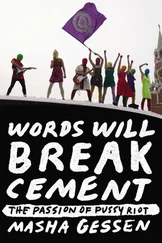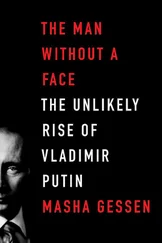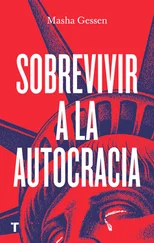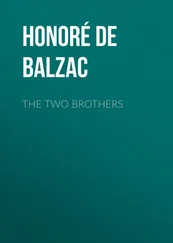Russian prime minister Viktor Chernomyrdin negotiated with Basayev over the phone, and some of the negotiations were caught on tape by Russian television reporters. Chernomyrdin sounded desperate. In the end he negotiated the release of most of the hostages—except for a busload of volunteers, most of them journalists and human rights activists, whom Basayev would take to Chechnya. They were to be released once Russia pulled back its troops and sat down to negotiate with the rebels. This happened.
The second major act of terrorism that originated in Chechnya (not counting the apartment bombings in 1999 that had almost certainly been falsely blamed on the Chechens) occurred less than a year after the Tsarnaevs arrived in Boston. On October 23, 2002, a group of men and women led by a twenty-three-year-old Chechen commander named Movsar Barayev seized a large Moscow theater during a musical performance, taking about eight hundred hostages. The standoff lasted three days. On Day Two, Khassan Baiev, the plastic surgeon now living in Boston, was called upon to negotiate with the hostage-takers over the phone, to try to secure the release of some of the hostages. He tried and failed. Earlier, a number of other people, including several journalists, had also talked with the hostage-takers, and some even managed to enter the theater; young children and non-Russian citizens had been released as a result.
The standoff ended on Day Three with a military operation that was as well conceived as it was spectacularly botched in execution. First, sleeping gas was pumped into the building through its plumbing system, knocking out everyone inside. Russian armed personnel rushed in. They shot dead all the sleeping hostage-takers, making a subsequent investigation impossible. Then they carried the unconscious hostages out and laid them on the porch of the theater, where none of them received prompt medical help. One hundred twenty-nine people died, most of them choking on their own vomit or asphyxiating because they were placed in a way that blocked their breathing.
The tragedy, so clearly created through negligence and, on a more basic level, so clearly a result of the continuing war in Chechnya, drew comparatively little media coverage and virtually no political attention in the United States. After September 11, America had stopped criticizing Russia for waging war in Chechnya. In the post-9/11 era, Russia got to reframe Chechnya, and the continuing bloodshed in Dagestan, as part of a war it was now fighting alongside the United States—the war against radical Islamist terrorists. The United States and Russia agreed to share information on the Islamist threat. Tokmok appeared on the map of the world, and of American–Russian relations: for eight years starting in December 2001, United States military planes would be taking off from Manas Air Base just outside Tokmok—by agreement with Kyrgyzstan and with Moscow’s acquiescence.
In this new era, when the United States stopped viewing Chechen rebels as freedom fighters and started seeing them through Russian optics, as likely Islamic terrorists, a new regulation blocked anyone who had provided “material support” to any of the extralegal fighters from receiving refugee status and a green card.
Musa Khadzhimuratov, though he came over as a refugee, would never be issued his green card. Had this regulation been in effect earlier, it could also have applied to Ruslan Tsarnaev, who at one point after moving to the United States started a group of Chechen exiles who may or may not have had ties to the pro-independence forces. Fortunately for Ruslan, by the time the new regulation went into effect, he was a full United States citizen.
• • •
RUSLAN’S AMERICANNESShad cost him a great deal. When he first moved to the United States with his wife, they lived in her parents’ house in Washington state. Graham Fuller, a former high-level CIA official, was a onetime Russia scholar, an expert on Islam, and a charming, enthusiastic talker. He and Ruslan spoke Russian with each other. But other than talking with his father-in-law while Samantha worked on her business-school applications, Ruslan did one of two things: he tried to master English by memorizing his way through a Russian–English dictionary, ignoring Graham Fuller’s counsel that this was no way to learn a language, and he sat on a couch in the basement, watching, over and over again, the same videotape of a Chechen celebration with Lezghinka, which they used to dance every night back in Bishkek. Eventually he began making contact with other Chechens in America, and he even registered his new organization at Fuller’s address. This activity brought him back to life, but by this time his marriage had collapsed.
His sister Maret’s marriage also ended, though once she arrived in Canada it began to appear that she had planned this all along, that her husband had been merely a means of transporting her across the Atlantic. All is fair in immigration. Except one thing: You never talk about the pain of dislocation. You do not describe the way color drains out of everyday life when nothing is familiar, how the texture of living seems to disappear. You breathe not a word of no longer knowing who you are, where you are going, with whom, and why—and the unique existential dread of that condition. Most important, you never question your decision: from the moment you cross the border, there is only ever the future.
Most immigrants eventually come out the other side, as Ruslan did. He completed his studies at Duke, married a Chechen woman he met in the United States, and eventually took a job in Kazakhstan, as an American, intending to return to the United States. He was now in a position to help his siblings. When his elder sister, Malkan, divorced as well, he took in her children, and he also offered to temporarily take Anzor and Zubeidat’s children while they engineered their move to America. Going to the United States, Ruslan was more certain than ever, was what they should do—if they wanted their children to have a future.
Tamerlan and the girls, Bella and Ailina, went to Kazakhstan to stay with Ruslan. In the Chechen tradition, it is the older brother who is the boss and caretaker of the family, but a big part of becoming a successful immigrant is knowing when to choose pragmatism over tradition: both Anzor and Ruslan would have to accept the reversal of family roles. Anzor, Zubeidat, and eight-year-old Dzhokhar traveled to the United States on tourist visas. They chose Boston because Maret and Alvi were both there at the moment. Neither had a stable living arrangement, however, so at first the newcomers stayed with Khassan Baiev, with whom Maret had become very close when he first came to the United States.
Dzhokhar started attending second grade at the public school where two of the Baiev children, Islam and Maryam, went. Max Mazaev helped Anzor get a few odd jobs. The family applied for asylum—once it was granted, it would extend to their other children, who would then be able to move to the United States. In April 2002, Anzor and Zubeidat found an inexpensive apartment in Cambridge, Massachusetts. Over the next ten years, it would witness the slow and catastrophic demise of a whole set of immigrant dreams.
Five
A DECADE OF BROKEN DREAMS
For a new immigrant, the simplest and smallest of life’s obstacles can be insurmountable. Take, for example, this scenario: You are an asylum seeker looking to rent an apartment over the months it takes to assemble your case. You are in the United States on a visitor’s visa. You have no credit history, no pay stubs, no tax returns to show to a potential landlord. You also have no way to tell the good from the bad, the normal from the crooked. You get swindled by brokers, pay out a fortune in application fees, get your hopes up, get your hopes dashed, lower your standards, and ultimately understand you just have to hope for a miracle.
Читать дальше
